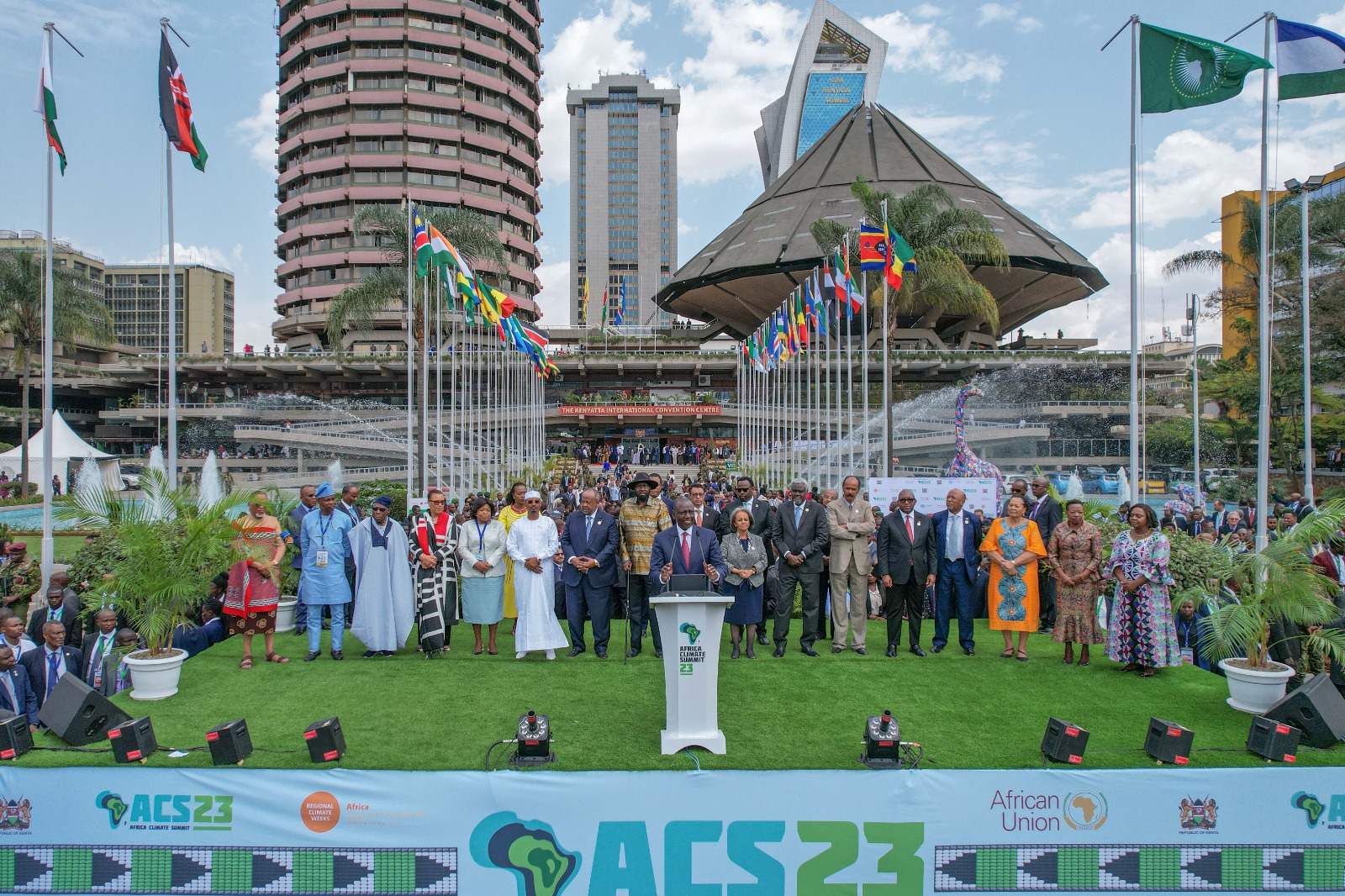African Heads of States and global leaders on Wednesday, September 6 ended the African Climate Summit with a resolution crucial to climate Change and call to action dubbed Nairobi Declaration.
The leaders came up with sixteen resolutions that need a collective action and commitment to mobilize the necessary capital for development and climate action, echoing the Paris Summit for a New Global Finance Pact that no country should ever have to choose between aspirations and climate action.
“We, the African Heads of State and Government, gathered for the inaugural Africa Climate Summit in Nairobi, Kenya, from 4 th to 6 th September 2023; in the presence of other global leaders, intergovernmental organizations, Regional Economic Communities, United Nations Agencies, private sector, civil society organizations, indigenous peoples, local communities,farmer organizations, children, youth and women and academia,” read part of the statement
The leaders commended the committee of African Heads of State and Government on Climate Change under the leadership of Kenya’s President William Ruto for providing a unified approach and political leadership on an African vision that simultaneously pursues climate change and development agenda.
Nairobi Declaration: Moving Forward
Additionally, under the Nairobi Declaration the leaders declared the African position on the way forward in the climate action, and the fundamentals that the international community must attend to in order to ensure humanity’s economic and ecological imperative are efficiently, coherently and sustainably delivered.
However, the leaders also underscored the Intergovernmental Climate Change confirmation that Africa is warming faster than the rest of the world, and if unabated, climate change will continue to have adverse impacts on African economies and societies, and hamper growth and wellbeing.
Further, with the Nairobi Declaration framework, the leaders also expressed concern on many African countries facing disproportionate burdens and risks arising from climate change-related, unpredictable weather events and patterns among other issues.
Moreover, the leaders acknowledged Africans role as one of the largest carbon sinks through the Congo Forest and peat land as well as the potential in Africa’s Savanna grassland, swamps, coral reefs and marine reserves and noted the development made by some countries in promoting land and ecosystem restoration through various initiatives and programs.
The leaders also reiterated Africa’s readiness to create an enabling environment, enact policies and facilitate investments necessary to unlock resources that will enable huge contribution to decarbonization of the global economy.
The leaders also called for collective action and commitment from the global economy to act with urgency in reducing emissions, fulfilling its obligations by keeping past promises and supporting the continent in addressing climate change.
Moreover, the Nairobi Declaration called upon world leaders to appreciate that decarbonizing the global economy is an opportunity to contribute to equality and shared prosperity.
Besides, the leaders also decided to establish the Africa Climate Summit as a biennial event convened by the African U ion and hosted by the AU member states that will enable the continent to set new vision on tackling global climate and development issues.
The leaders also decided that the declaration will serve as a basis for Africa’s common position in the global climate change process to COP 28 and beyond.
Finally, the leaders requested the African Union Commission to develop an implementation framework and roadmap for the declaration to make climate change an AU theme for the year 2025 and year 2026.

